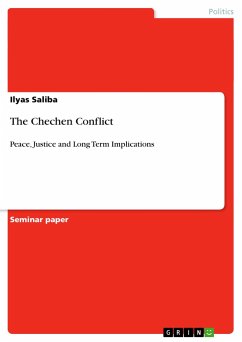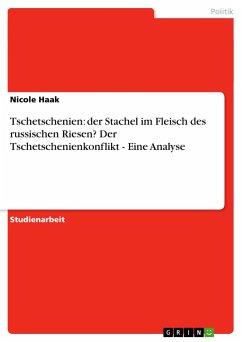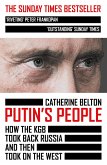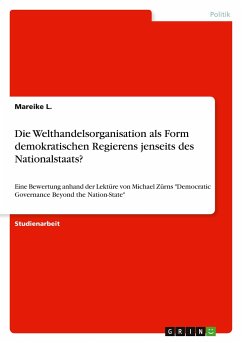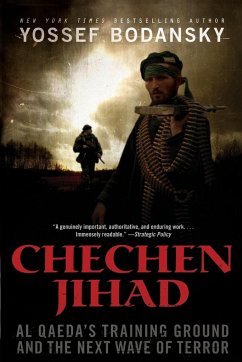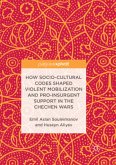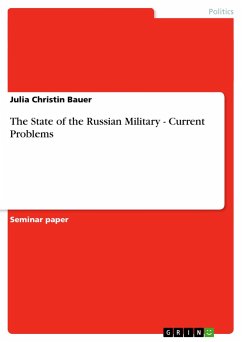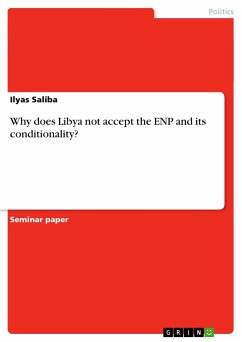Seminar paper from the year 2009 in the subject Politics - International Politics - Region: Russia, grade: 1,3, Göteborg University (School of Global Studdies), course: Special Course in Conflict Resolution, language: English, abstract: In the opening part of this paper I will firstly discuss the concepts of peace and justice and the tension between them, theoretically through referring to the relevant literature. Secondly I will reflect on the role of interests from actors and their different definitions of peace. Thirdly I will explain what kind of implications this inherits for long-term peacebuilding. In the fourth part I will enrich the discussion through highlighting one example on the basis of my case study of the Chechen conflict. The concepts of peace and justice are inseparably connected with each other in modern long-term peacebuilding. But why is this so? I will try to explain this through referring to the development of the concept of peace within the field of conflict resolution. Everything started with a very simple, though obvious and evident definition of peace. Fernando labels this the "traditional view which argued that peace is the absence of war." (Fernando 2000: 1). One terminological criticism is that the word "war" as a extreme and specific type of violence does not take other forms of violence, like for example structural violence, into account. Although, as research shows, the victims of structural violence at least quantitatively are a lot higher, than those who suffer from direct violence as for example war. Therefore Galtung already in the late 1960s introduced the concept of a broader understanding of peace as the absence not only of war but "the terms 'peace' and 'violence' be linked to each other such that 'peace' can be regarded as 'absence of violence'" (Galtung 1969: 168).
Hinweis: Dieser Artikel kann nur an eine deutsche Lieferadresse ausgeliefert werden.
Hinweis: Dieser Artikel kann nur an eine deutsche Lieferadresse ausgeliefert werden.

